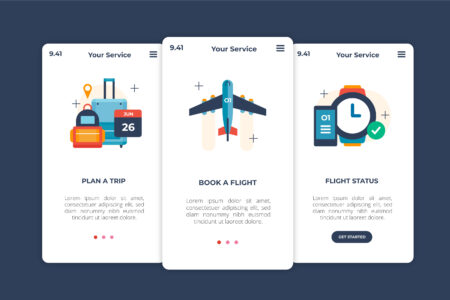18 December 2023
By Roger Kennedy
roger@TheCork.ie
The airline industry usually experiences flight overbooking. Airlines overbook flights for various reasons. Overbooking protects an airline from a significant revenue loss in last-minute flight cancellation. Usually, airlines experience a few no-shows.
They use automation to predict no-shows expected and overbook flights to ensure fewer empty seats. But airlines may overbook a flight and don’t experience no-shows. The airline will most likely deny you boarding the flight in this case.
You’ll then be eligible for overbooking flight compensation. The compensation amount ranges from €250 – 600 for EU-regulated flights. But this depends on the airline’s policy. Airlines use sophisticated automation to process overbooking compensations. Read on to find out more!
What is Automation and How It’s Used in The Airline Industry?
Any compensation for overbooked flight makes the airline lose precious financial resources. Airlines use automation to make overbooking more efficient. The automation technology predicts no-shows expected and adjusts overbooking accordingly. As a result, the airline reduces cases of overbooking compensation claims. The automation technology uses these strategies to work efficiently:
- Predictive Analytics
The automated systems analyze historical data on on-shows and predict expected numbers. Since the systems work more efficiently, they help the airline industry minimize overbooking compensations.
- A Central Booking System
Automated systems have also centralized bookings from various channels. As passengers book from multiple channels, the system auto-updates the inventory to reduce overbooking.
- Excellent Error Detection
If any booking channel experiences technical issues, the automated systems can detect it immediately. The system can then present an alternative, in some cases manual booking, to combat technical issues.
The Impact of Automation on Overbooking Flight Compensation
Automated systems have reduced overbooking flight compensation and increased the airline industry’s profit margins. That has positively impacted the airline industry as airlines can manage payouts to passengers as compensation.
Additionally, the automation of overbooking flight compensation has proved efficient and accurate. Airlines can overbook flights more efficiently and accurately and experience manageable no-shows. What’s more, automation has also streamlined the compensation process.
Passengers can claim compensation, and the automation validates and processes the claims more efficiently than before. The automation has guaranteed customer satisfaction. As it manages overbooking efficiently and processes compensations smoothly, passengers become satisfied with an airline’s service delivery.
The automation systems make sure the airline is compliant with its compensation policy. The systems safeguard your passenger rights, spelled out in regulation EC261 for EU flights. This ensures the airline compensates you in the event of overbooking.
Advantages of Using Automation in Overbooking Flight Compensation
Automation systems have helped passengers and airlines reach common ground after an overbooked flight. It continues to streamline aviation to minimize inconveniences. The airline industry has benefited from automation because of its efficient performance resulting from these advantages:
- Accurate Performance
Automation has accurately analyzed historical data on no-shows and predicted future occurrences correctly. Systems automation even overbooks a flight in a way that accounts for the possibility of more passengers showing up. The accurate performance reduces cases of overbooking compensation claims.
- Increased Profitability
Automation has increased airlines’ profitability by 1.3%. It has reduced compensation claims and efficiently booked flights for passengers.
- Performance Efficiency
Besides streamlining overbooking compensations, automation has also improved overbooking efficiency. As it analyzes past data, it can centralize bookings from multiple channels without any risk of overbooking.
Challenges and Solutions in Implementing Automation
Automating overbooking flight compensation has its share of challenges that affect its operations. The challenges arise from various factors, including the following:
- Inadequate IT Readiness
Some small airlines may not have the resources to invest in a dedicated IT infrastructure and automate their systems. Even for larger airlines, investing in automation is very expensive. Airlines should upgrade their IT infrastructure and train the workforce.
- Insufficient Technical Skills
Automating an airline’s systems requires specific skills and expertise. An airline should train its personnel to acquire the skills and expertise.
- High Initial Investment
Building a dedicated IT infrastructure and training personnel to learn systems automation skills require a high initial investment, posing a great challenge. A cost-benefit analysis will help any airline automate its systems for efficient operation.
Future Trends in Automation and Overbooking Compensation
Automation has come a long way and still goes through upgrades. We can only expect to see these futuristic technologies in airline automation systems:
- Artificial Intelligence
AI can make automated systems to learn, adapt, and decide on the best practices to optimize an airline’s operation.
- Increased Automation Usage
Automation will only increase as the skilled workforce continues to shrink. Airlines can’t get enough highly skilled personnel to take up various roles. That leaves them with automating their systems to optimize operations.
- Automating Hospitality Services
Airlines may soon automate payment for accommodation services like hotels and cater to your needs when traveling abroad. Maybe you will pay for essential services from an airline’s payment system, making your travel more convenient.
In conclusion
Airlines still grapple with overbooking flight compensation if they don’t experience no-shows. They have automated their booking systems to account for no-shows. While this has increased their profits, automation has also presented them with challenges. But for the most time, automation has streamlined the airline industry in managing compensations. If you’ve claimed overbooking compensation, let us know how smooth (or challenging) the process was; we’d love to hear from you.


